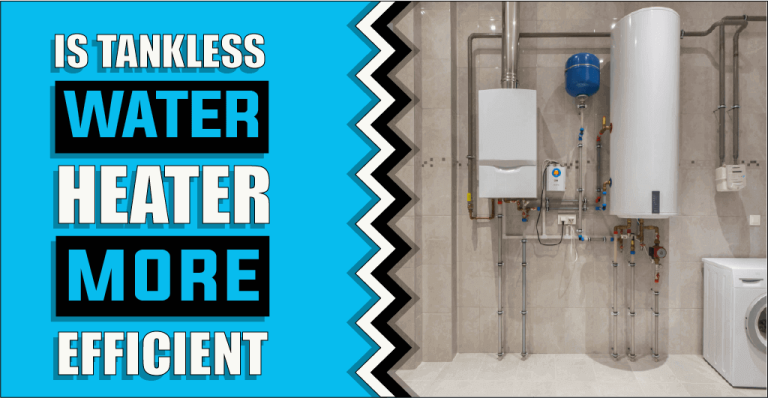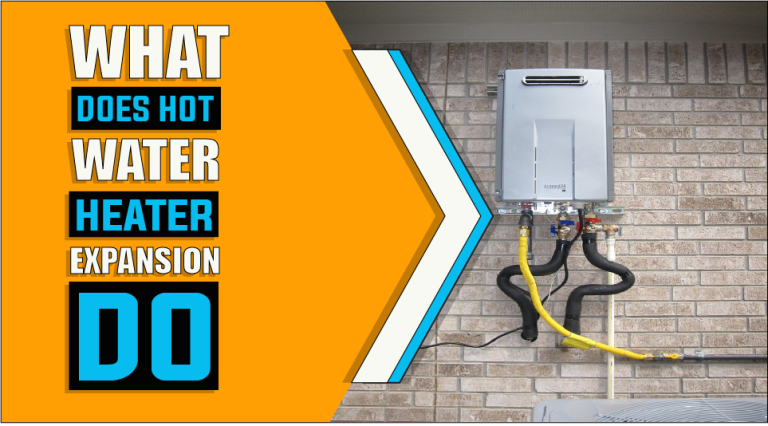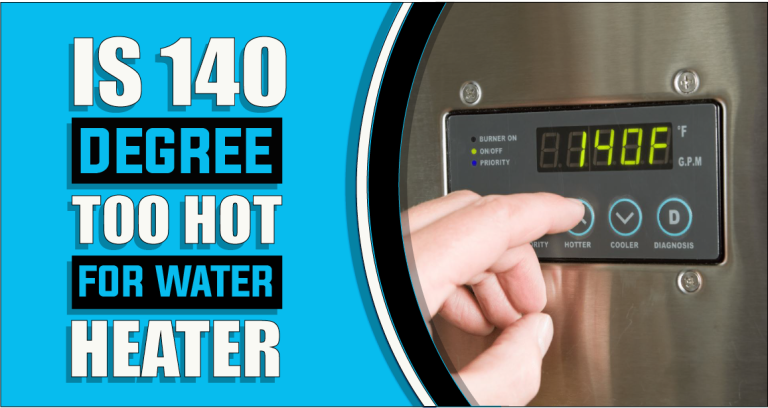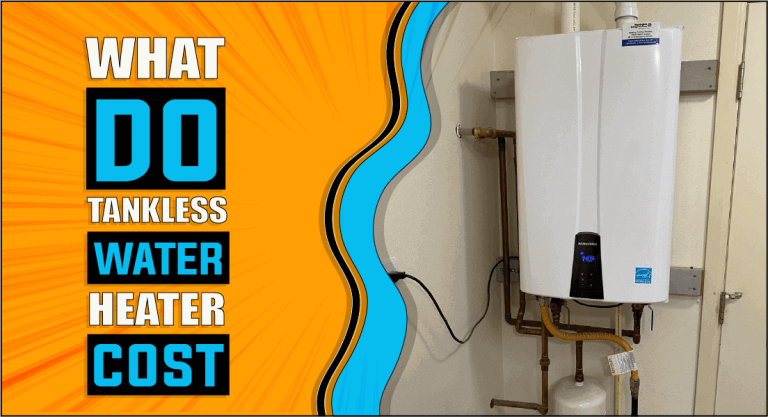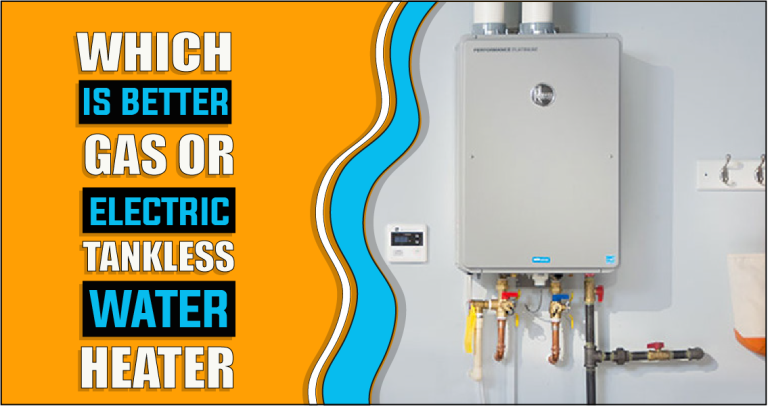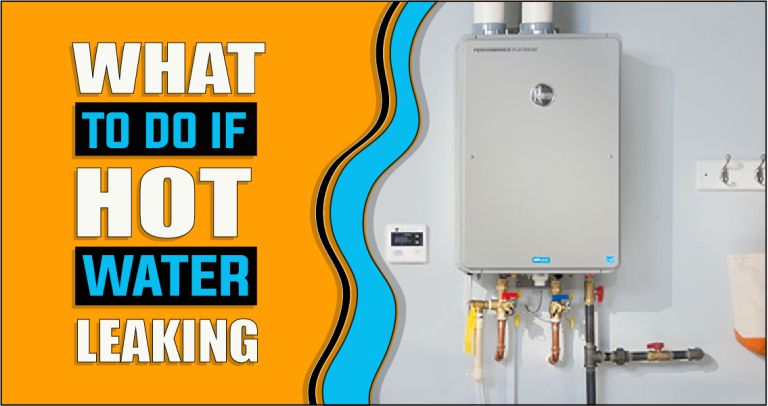Which Is Better Tankless Water Heater Or Tank – The Truth Reveals
Are you searching for a new water heater and can’t decide between the tankless water heater or the tank? With so many choices out there it can be difficult to know where to start. But don’t worry we are here to help! Tanked and tankless water heaters both come with advantages, but for most people, one type of water heater stands out based on their unique needs. So whether you’re looking for an energy-saving solution or trying to upgrade an outdated system, we’ll guide you through the process of understanding which type of water heater is right for your home. Read on to discover the differences between a tankless water heater and a tank, so you can make an informed decision about which is better tankless water heater or a tank for your space.
Let’s investigate out which is better tankless water heater or a tank
A tankless water heater and a traditional tank-style water heater both offer advantages in terms of efficiency, convenience, and cost. Tankless water heaters are often the better choice for a home for several reasons. First, they are more efficient as they only heat water when it is needed, rather than constantly keeping a large tank of hot water on standby. This can save money on energy costs while also reducing environmental impact.
Additionally, they take up less space because there is no bulky tank taking up room in the utility closet or other areas of the home. Plus, tankless models provide an unlimited supply of hot water; so if your family tends to take long showers or do laundry back to back, you won’t have to worry about running out of hot water like you would with a tank system.
Finally, with proper maintenance and care, tankless systems can last twice as long as their traditional counterparts up to 20 years compared to 10 years for tanks. Ultimately, if you’re looking for an energy-efficient way to keep your household supplied with hot water that takes up less space and lasts longer over time, then a tankless system is likely the better option for you.
Tankless Or On-demand Water Heaters
Tankless or on-demand water heaters are an innovative solution to providing hot water in homes and businesses. By using a gas burner or electric element, these heaters can heat cold water almost instantly as it passes through a copper coil. This eliminates the need for storing large tanks of hot water, which can save energy and money. Rather than continuously heating a large tank of stored water, the tankless heater will only heat the amount you need, when you need it. This not only cuts down on energy usage but also reduces the cost of operation since no energy is wasted storing unused hot water.
Additionally, this type of heater can provide an endless stream of hot water without running out, so long as there is an adequate supply of cold water available. Tankless systems require less maintenance than traditional storage tanks and often come with warranties of up to 20 years. Moreover, they are much smaller in size compared to regular storage tanks, allowing them to be installed in tight spaces such as closets or attics.
Overall, tankless or on-demand water heaters offer significant energy savings over traditional storage tank systems while providing an unlimited supply of hot water whenever you need it, making it perfect for households who want fewer interruptions during their morning showers!
Storage Or Tank-style Water Heaters
Tank-style water heaters, also known as storage water heaters, are one of the most common and popular types of residential water heating systems. A tank-style system utilizes a large insulated storage tank that holds several gallons of hot water at once, ready for use whenever it is needed. These tanks can range in size from 20 to 80 gallons and typically have a lifespan of 12 years or more.
The primary benefit of these systems is that they can heat large amounts of water quickly and provide an ample supply for multiple needs at the same time. Moreover, tank-style water heaters are generally less expensive than other types of systems, making them particularly attractive to many homeowners.
Additionally, they are relatively easy to install and maintain compared with other options, and their efficiency levels can be improved with regular maintenance such as flushing out sediment or replacing heating elements. As with any type of heating system, however, tank-style water heaters can be susceptible to malfunctioning over time due to corrosion or improper installation; regular inspections can help identify these issues before they become serious problems. Nonetheless, tank-style systems remain an excellent choice for many households thanks to their convenience and affordability.
Pros and Cons of Tankless and Tank Water Heaters
Weighing the benefits and drawbacks of tankless -vs- tank water heaters? You no longer have to worry about making a soapy choice; we’re here to provide all the facts! Check out our brief breakdown on each side before you make your decision.
Pros of Tankless Water Heaters
Enjoy endless supplies of hot water with a tankless heater! By cutting out the bulky storage tanks, you can enjoy greater energy efficiency and space savings, all while knowing that your showers will never run dry.
1: Last Longer
Tankless water heaters last significantly longer than traditional tank-style heaters, often with an estimated lifespan of up to 20 years. This is because tankless water heaters only heat water when needed, rather than constantly heating and reheating a fixed volume of water stored in a tank. So they are less likely to suffer from overheating or corrosion compared to tanks that are always filled with hot water
2: Save Space
Tankless water heaters are far more compact than their traditional counterparts; they can be mounted on walls or hung on brackets, freeing up valuable floor space. What’s more, some models can even be hidden away behind cabinets or other storage areas, allowing for a completely seamless look within your home decor.
3: Save Money
The energy efficiency offered by tankless water heaters allows households to save a significant amount of money over time as compared to traditional tank-style systems. Unlike tank-style systems which require energy to continuously keep the hot water reservoir warm between uses, tankless systems only use energy when hot water is being used at the source. This provides long-term savings on utility bills while also reducing the household’s carbon footprint.
Cons of Tankless Water Heaters
Notoriously known as the costlier option, tankless water heaters can prove to be a pricey choice. In addition to their hefty price tag, there are other downsides such as limited flow rates that could hinder being able to get hot water on tap quickly enough for your family’s needs.
1: Initial Cost
Installing a tankless water heater can be costly. Tankless heaters cost more than traditional tank models and require additional materials for installation, such as special venting and electrical work. The total cost of installation for a tankless water heater often ranges from $1,000 to $3,000, depending on the complexity of the job.
2: Limitations with Flow Rate
Tankless water heaters are limited in the amount of hot water they can provide at any given moment. Despite their efficiency, they can run out of hot water quickly if too many appliances or fixtures are drawing on it at the same time. This is because most residential units are only rated to provide 2 to 5 gallons per minute (GPM). If one appliance is already running at full capacity when another is turned on, there won’t be enough hot water pressure to meet both demands simultaneously.
Pros of Tank Water Heaters
Tank water heaters have an arsenal of advantages, like providing a consistent and reliable supply of hot water whenever you need it. Plus they offer financial benefits too – tank-style models are usually cheaper to buy than other types! Now that’s what we call the perfect home upgrade!
1: Low Installation Cost
Tank water heaters are generally easy to install and require minimal labor, making them an economical and cost-effective option for many households. As they typically don’t require any additional parts or special configurations, the installation of tank water heaters is a straightforward process that can be completed in a short amount of time.
Furthermore, the components required to install them such as pipes, fittings, and valves are relatively inexpensive and widely available.
2: Easier Maintenance
Regular maintenance is important to ensure a tank water heater operates properly and continues to perform efficiently over time. Fortunately, this type of unit requires very minimal upkeep; generally speaking, all it requires is occasional flushing out with vinegar or baking soda to remove any built-up sediment from the bottom of the tank and an annual check-up from a qualified technician to make sure everything is running smoothly.
In comparison with other types of home heating units, tank water heaters are relatively low-maintenance in terms of required upkeep and therefore offer peace of mind for busy homeowners who don’t have much prep time for complex maintenance tasks.
3: Durable and Long-Lasting
When it comes to durability, tank water heaters are one of the best options out there. With a typical lifespan of 8 to 12 years (and sometimes even longer depending on how well maintained they are), these units offer great value for money over time and can be expected to last for many years to come.
Plus, since they are designed to withstand extreme temperatures and other environmental factors, tank water heaters can be installed both indoors and outdoors without any issues. This means that no matter the climate or geographic location of your home, you can rest assured knowing your unit will perform reliably for years to come.
Cons of Tank Water Heaters
Tank water heaters can cause a lot of headaches. From the expense of larger tanks to increased energy costs, there are lots of reasons why these appliances aren’t always ideal for hot water delivery.
1: Higher Energy Costs
Tank water heaters, while typically cheaper to purchase than tankless systems, require more energy to operate due to their design. This can create a higher strain on the monthly utility bill for the owner. Because these systems are always running and operating, even when hot water is not needed, it is easy for the cost of operation to add up quickly because of their constant energy use.
2: Limited Lifespan
Another disadvantage of tank water heaters compared to tankless units is that they have an expected lifespan ranging from 8-12 years depending on the model and installation. This limited lifespan can often result in costly repairs or replacements as well as sudden outages in the hot water supply should a breakdown occur at an inconvenient time. Additionally, tank water heaters use an insulation material called fiberglass which over time can become brittle resulting in further damage and a shorter life span than expected.
Frequently Asked Questions
Yes! Tankless water heaters offer many advantages over their traditional counterparts that make them a worthy investment. From their efficiency to space savings and longer lifespans, tankless models can provide cost savings as well as convenience for years to come.
The main drawback to tankless water heaters is the initial cost. Installing a new system can be expensive and require additional work depending on the building code requirements in your area, but their long-term savings make them a worthy investment for many households. Additionally, some models may not have the BTU output needed to handle multiple fixtures running at once.
Tankless water heaters can last longer up to 20 years with proper maintenance and care, whereas tank models typically need replacement within 10-15 years depending on usage and maintenance levels.
Most tankless water heaters require minimal maintenance, usually just requiring occasional flushing and temperature adjustments. If something does go wrong, however, it is usually cheaper and easier to repair than its tankless counterpart.
The most effective water heating system will depend on your individual needs. Tankless models are great for households that don’t use a lot of hot water throughout the day, as they only heat the amount of water you need when you need it and can save you money in energy costs. On the other hand, tank systems may be better suited to homes with large families that use hot water frequently as they have a larger storage capacity.
Conclusion
So in conclusion of this article which is better tankless water heater or a tank? It is difficult to conclusively state which type of water heater is “better” since it largely depends on the individual needs and circumstances of each household, such as budget, size, access to natural gas lines, electricity or propane, etc., which can significantly impact a person’s choice in water heaters. However, depending on these variables, one may find that tankless water heaters are more cost-effective overall in terms of energy efficiency and long-term savings on utility bills and maintenance costs due to their extended lifespan and unlimited hot water supply capabilities relative to tank-style units without sacrificing flow capacity needs. On the other hand, if budget constraints are a major consideration or if high flow capacity needs are a priority, then traditional tanks may be a more affordable option for some homeowners because they tend to require fewer upfront costs and can meet those needs without additional hardware or installation costs.
Ella John is passionate about helping her readers make the best choice when purchasing a heater. She understands that selecting a heater can be difficult and strives to provide information to help make the decision easier. Ella’s website, Heatersinfo.com, provides valuable insight into heating trends and types of heaters and tips on how to care for them. She also advises selecting the right heater based on individual needs and preferences. Her expertise in electronics makes her an excellent source of knowledge, and she is confident that anyone who visits her website will find the perfect heater information for their needs. Ella’s dedication to helping others make educated decisions about buying the right heater is unparalleled, and she hopes to continue offering her expertise for many years. With Ella’s help, finding the perfect heater can be a breeze!

